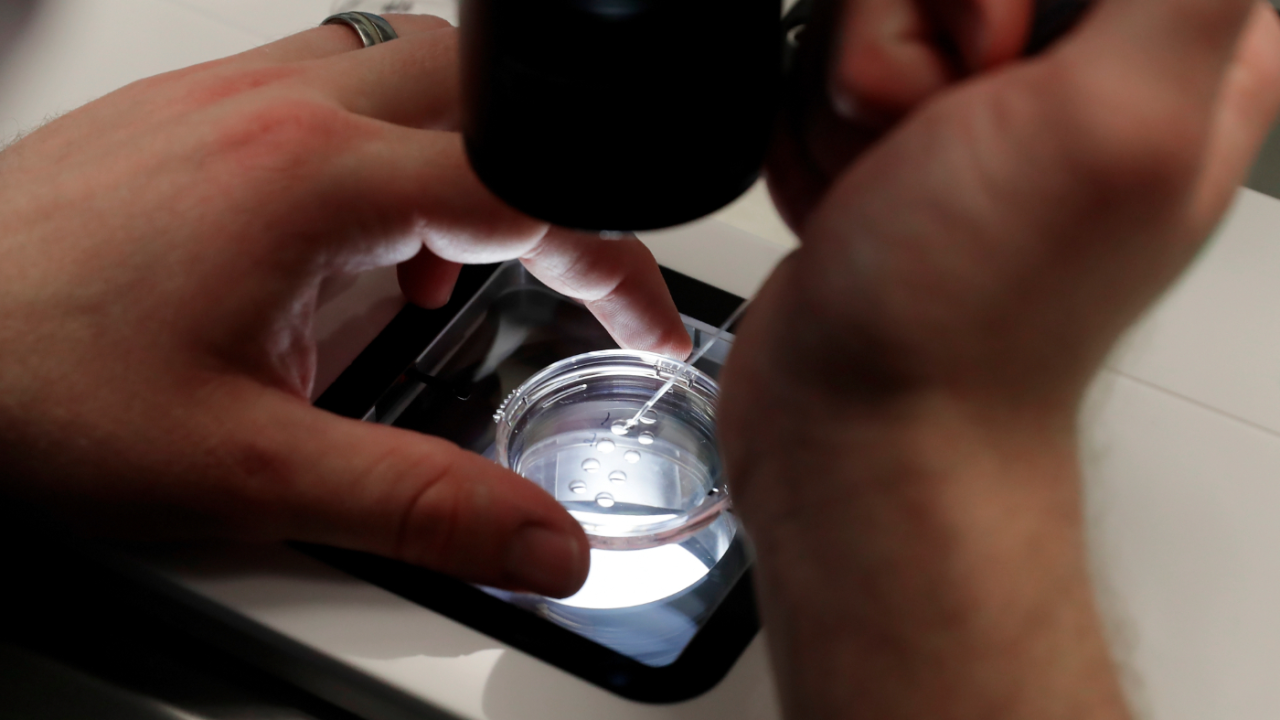State laws designed to preserve access to infertility treatment are taking effect, even as Republicans continue to debate their positions on the matter.
Source: The Washington Post
State laws that protect and expand access to in vitro fertilization take effect Tuesday and in coming months as lawmakers continue working to address questions surrounding the procedure more than a year after an Alabama Supreme Court ruling muddled its legality.
In Tennessee, state law codifies the right to IVF and other fertility treatments beginning Tuesday. In Virginia, a new measure directs a health insurance commission to consider coverage plans for infertility. And in California, a law that would have taken effect Tuesday before being delayed will move the state toward requiring some group health plans to cover fertility treatments, including IVF.
Those states join Georgia, where lawmakers passed an IVF protection bill in May after confusion and concern among state residents about access to infertility treatment grew.
“Such uncertainty,” the Georgia law states, “needs to be addressed.” the Alabama Supreme Court ruled that frozen embryos are children after a couple filed a lawsuit over the destruction of their embryos by a fertility clinic. The decision prompted lawmakers across the country to reevaluate reproductive health restrictions.
IVF, which involves creating embryos from sperm and eggs in a laboratory and transferring them to the uterus, often produces multiple embryos that may be discarded or go unused. Tens of thousands of people each year use IVF, the most common form of assisted reproduction, to fulfill their hopes of having children.
For states in the South, such as Georgia and Tennessee, where nearly all abortions became illegal after Roe v. Wade was overturned in 2022, the aftermath of the Alabama court’s decision revealed a divide among conservatives over how to address procedures like IVF.
Some GOP leaders, including President Donald Trump, distanced themselves from the ruling and expressed support for the treatments. Others hesitated because they saw the discarding of embryos as destroying life.In February, Trump signed an executive order aimed at expanding IVF access and “aggressively” reducing its costs, directing a policy group to make recommendations to him within 90 days. The White House has not announced any detailed plans to address IVF through federal policy, however Sean Tipton, chief advocacy and policy officer at the American Society for Reproductive Medicine, described the laws in states like Georgia as “important symbolic measures.
“They demonstrate particularly what Republican elected officials took from the Alabama situation, which is: ‘IVF is popular. We need to be careful that we are not seen as opposing it,’” Tipton said.
But some antiabortion advocates are voicing opposition to new state laws protecting IVF, arguing the procedure undermines the antiabortion cause.
Lila Rose, president of Live Action, one of the largest antiabortion groups in the country, criticized antiabortion legislators who support legal protections for IVF providers, arguing that they are “immunizing these IVF clinics that are responsible for many deaths via embryo destruction.
”She said it is a “deep contradiction” for lawmakers who have voted to ban abortion to support expanding access to IVF.
Trump and other Republicans have struggled to see eye to eye on how to address non-abortion reproductive procedures after the Alabama Supreme Court ruling. At the time, Alabama Gov. Kay Ivey signed a bill to give patients and providers legal cover if embryos are damaged or destroyed during IVF.
A coalition called Fight for Alabama Families is pushing for a constitutional amendment that would protect the right to IVF, but the political road is complicated. Unlike other states, Alabama requires three-fifths of the legislature to approve any constitutional amendment before it goes to voters.
Complicating matters is Alabama’s 2018 Sanctity of Life Amendment, which makes recognizing and supporting the rights of unborn children state policy. While that measure was initially seen as targeting abortion, its reach has cast uncertainty over IVF protections.
“When lawmakers try to turn this fetal personhood ideology into law, they create these one-size-fits-all laws that are always going to do more harm than good,” said Courtney Andrews, reproductive rights policy strategist at the ACLU of Alabama.
Georgia and Tennessee’s new laws are short. Their language does not mention “abortion,” stipulate an embryo’s personhood or grant financial assistance, as California has moved to do.That was intentional, said state Rep. Lehman Franklin (R), who sponsored Georgia’s IVF protection bill. He was not a member of the legislature when lawmakers passed the Georgia “heartbeat” bill, which defines a fetus as a person.
Franklin’s support of the IVF bill came after his own family’s nearly decade-long struggle with infertility. In September, he and his wife learned that their latest round of IVF was successful. As he took the bill through his chamber, advocates approached him from all sides, “pushing” him to include various provisions, Franklin said.
“I said no to all of it,” he said. “I made sure that it was very simple, very clean, and that it could pass through.”
Simultaneously, Franklin’s Republican colleagues brought forth a bill that stipulated that a person would be defined as “every stage of development from fertilization” — a measure that could have confused patients and providers, as Alabama’s legal ruling did. It failed in committee.
Similarly, in Tennessee, as a bill to protect IVF progressed through the chamber this spring, so did multiple measures that would have included the fertilization stage in its personhood definition.
The personhood measures are a signal that lawmakers are likely to take up similar bills during the next legislative session, said Kelli Nowers, executive director of AWAKE, a gender equity group in Tennessee. The organization, which is nonpartisan, helped draft the language for the new IVF.
Under California’s law, certain insurance plans will be required to cover the cost of diagnosis and treatment for infertility, including up to three completed egg retrievals. Gov. Gavin Newsom (D) signed a state health bill Monday that delayed the start date from Tuesday to January 2026.
Though Tennessee’s law, like the one in Georgia and other Southern conservative states, was intentionally simpler, advocates hope to build on those efforts to expand IVF access, Nowers said.
For now, it was about “understanding the climate, the power map and what is realistic without further or creating harm to families,” she said.






